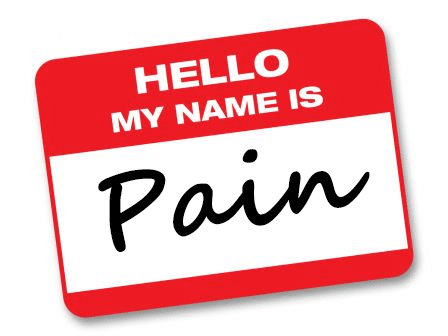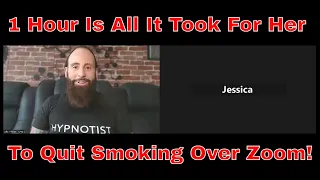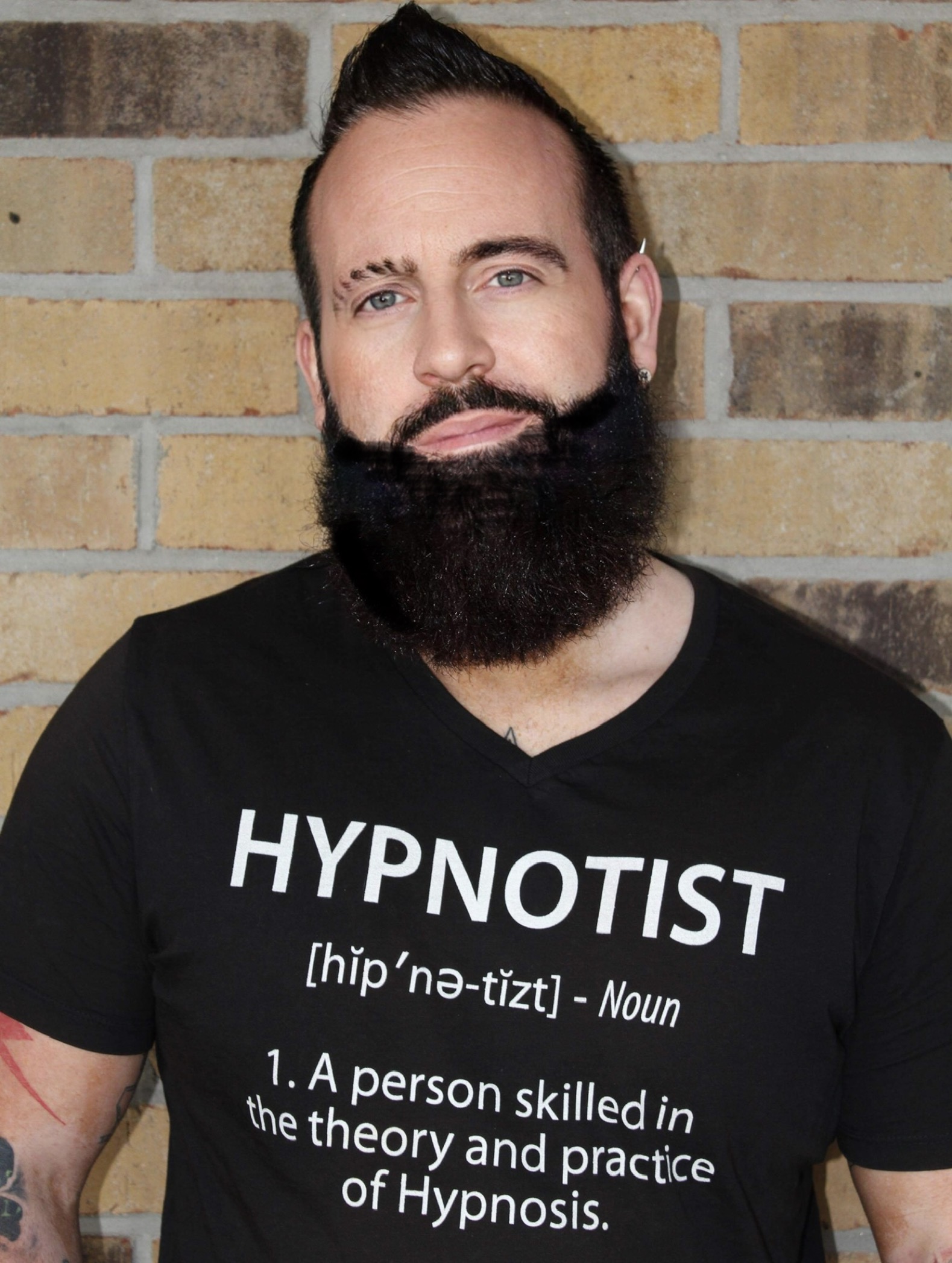
So if you are in pain and you know anyone that's in pain, please pass on along this podcast, spread it, share it. There's nothing that people need to do. It's typically a one session to deal with something like this type of pain. It's not something you need to keep updating or topping off because essentially, most of the time in one session when we turn off the old pain, it's gone. If your body needs the pain, it will hold onto it, but if the body truly doesn't need to hang onto this message, which is in most times the case, it will just let it go.
It's not the best business model in the world to heal people of their pain in one session because we only see you one time but it's gone. So it's a very, very good thing. It's a very, very fast thing for overcoming any inappropriate pain out there.
Because you may pay a lot of money for many different type of therapies that only slightly make you feel better or don't work at all whereas this form of hypnosis, neural linguistic programming in old pain to go that I use typically works in one session with people and they don't have the pain anymore or it drastically reduces. Some people may even keep a little bit of the pain, a tiny bit of the pain, and it just reminds them not to overdo things whereas if they completely lost the pain, they might overdo things a little bit. But that's up to your unconscious mind to decide. It's a very simple and easy process to do out there.
So do look up this stuff out there and see some of the work that I do with people out there because most pain that we have is either past-based i.e. something happened a long time ago and we're still hanging on to that pain or it's future-based thinking, "Oh, when I do that activity tomorrow, my back, my neck, my shoulder will hurt." Oftentimes a client will come to see me for some kind of pain alleviation and I'll say, "Okay. On a scale of 1 to 10, how much pain are you feeling in your back right now?" And they'll say, "Well, I know when I got up this morning when I got out of bed it was an 8 out of 10." "Yeah, but where's your pain now?" And they'll be like, "I know when I leave your office and I go up that flight of stairs and I go to the gym and I go on to the elliptical, it'll be a 9 out of 10." "Yeah, yeah. But where's your pain now?" And just taken away the anticipatory pain of the future and that hereditarial historic pain, I should say, from the past often takes two thirds of that pain away and drastically in that moment is reduced.
Now, new pain. New pain is appropriate. New pain is I just got hit by a truck. Then go to a hospital, stupid, and get that sorted out. Sort it out. That's new pain. But old pain is like chronic pain, stuff that you've seen all the specialists, you've been diagnosed for 20 years, 30 years now. You've still got all that pain. There's no appropriate reason for you to have that anymore. It's almost...to use a metaphor, it's almost like there's an alarm bell that's going off inside your body yet it's going off all the time with the pain. All the time the flashing lights, the loud sound. Now if the alarm bell is going off 24/7 of pain then when you do actually have new pain i.e. there's an accident that just happened that you need attention to immediately, you don't notice it. Because the alarm's going off all the time, you don't notice what new pain is. It's being masked by the old pain and it's almost like the little boy or little girl that cried wolf. Because you're hearing it all the time, you don't go and get diagnosed any new pain that you have, which in turn can eventually become worse.
And what I teach clients is this. Often clients will to see me and it's often...when it comes to their pain, it's like they're driving 100 miles an hour down a 50 mile an hour maximum highway. And I say, "Hey, what's gonna happen is every time you're breaking the speed limit down this 50 mile an hour highway you're doing 100 miles an hour." The police come by, the cops come by and they stop you and they say, "Hey, stop it. Stop it, stupid, or we're gonna cite you. We're gonna write you a ticket. We're gonna fine you. We're gonna put you in prison."
And if you stop that and you start to go 50 miles or a little bit less down that highway you're good. The cops don't come to pull you over. But if you start going faster again, the police pull you over. Now use that metaphor in your own life. If you're doing too much with the pain that you have, your body's gonna produce more and more pain because it's saying, "Hey, stupid. You agreed to do less work to be less driven, in which case we, as your body, as your unconscious mind, we don't need to make you feel any pain anymore because you're working within these parameters."
Oftentimes, clients that I see, too, when it comes to pain, they're like, "Well, if I go 100 miles an hour all of the time, I'll get where I need to go faster." But you don't because you're being pulled up metaphorically by the cops all the time which is slowing down your journey whereas if you just went slow and you stayed within your boundaries, you stayed within the speed limits, you'd actually get more stuff done, get where you need to get faster because you won't be pulled over by the cops and experience your pain all the time.
New pain. Go get it sorted out immediately. It's very, very important. Old pain is just a message and oftentimes, when you're getting the message of what the body's trying to tell you, which might be as simple as, "Hey, stupid. Stop overexerting yourself while you're playing squash." And you listen to it and you stop doing that. I've seen miraculous things that happen there.
Pain only comes to send you a message. Pain comes to say, "Act on this message now." And when you act on that message, most of the time, it disappears as old pain. The thing is, we all feel pain, but we actually don't feel pain in the way that we think that we do. For example, if you bang your elbow, your funny bone on a wall you feel pain but it's actually not your elbow. Not your skin. Not your elbow joint that feels that pain. You see, your elbow sends a message to your brain. Your brain goes, "Oh, you've just hit yourself, you've give yourself a boo-boo, you've banged yourself." And sends the pain signal back into your nerve endings. Then you feel pain but it happens in a millisecond like that. Your body cannot feel pain. Your brain feels pain.
So the interesting thing is there is a very small percentage of people on Earth that feel no physical pain. Literally, you could put them in fire. They would die if they stayed in the fire long enough yet they wouldn't feel the pain. You could shoot them up and down their body, you could stab them, I know these are violent metaphors, yet they wouldn't feel the pain. If they didn't get emergency service after to stop the bleeding out, they'd probably die. Yet there's a part of the brain that's not plugged into their body which means they cannot feel pain which in some ways, sounds like a super power, but other ways they could accidentally get lacerated sometime, but because they don't feel the pain they never get medical attention and they just pass out and they die.
Every person I've ever seen that had some kind of pain, old pain that's been there chronically for many, many years, there was some emotion behind it that when that emotion was realized and let go and understood, oftentimes, the pain either miraculously disappeared or downgraded to a very, very small number out of 10.
So that's really all that pain is. So if you do have chronic pain that you're holding onto yourself right now, you have to ask yourself, "What's the purpose of me holding onto this pain and am I willing to let go of this pain, have this message, and move onto the life that I really want to live, a pain free life?" Even if that means do I need to slow down in my life or give up certain activities in order for this pain to miraculously disappear. And as always, to be absolutely clear, I'm talking about chronic pain. If you have new pain, an accident happened, obviously go to a doctor, obviously go to the hospital, and obviously get surgery. You don't need me to say this but there's some people that think are smart out there that are gonna misinterpret the words I'm saying. No. Get fucking help from a medical professional. New pain. I'm talking about old pain, the chronic stuff that's been there for many, many years that you've seen all the surgeons, the doctors, the chiropractors, the massage therapists yet you still have it. Why do you still have it? Because it's a message you haven't got. When you get that message, most of the time, you can let go of that pain and I've literally seen it happened many, many times.
If you look into the work of Steven Blake of, "All Pain To Go," which I am a practitioner of as well. It's miraculous work that I've seen out there that he has done, his practitioners, and now that I do with my 21 year in change therapies using different techniques. I just happened to find this one is the fastest and best ways right now.
So I hope you've enjoyed this podcast. I hope it's opened up your eyes and your ears and your body to what old pain really is and that you can let go of it whether it be fiber myalgia, whether it be osteoarthritis, osteoporosis, you can let go of it. And at very worse, you can drastically limit a lot of that old pain and dial it down.
Part one can be found here: http://www.lukenosis.com/how-physical-really-pain-work/
Always Believe,
Luke Michael Howard CHT
Clinical Hypnotist





